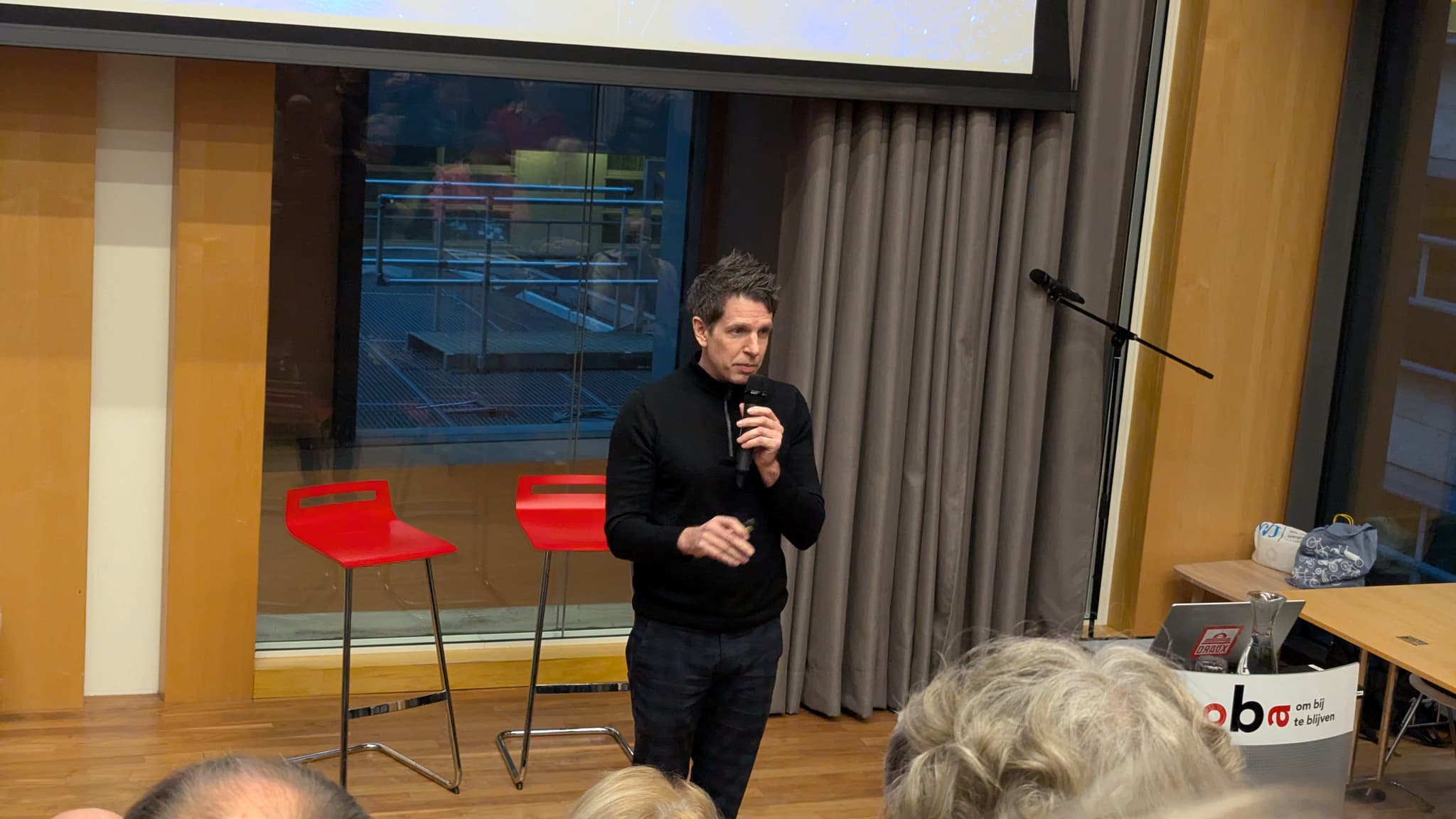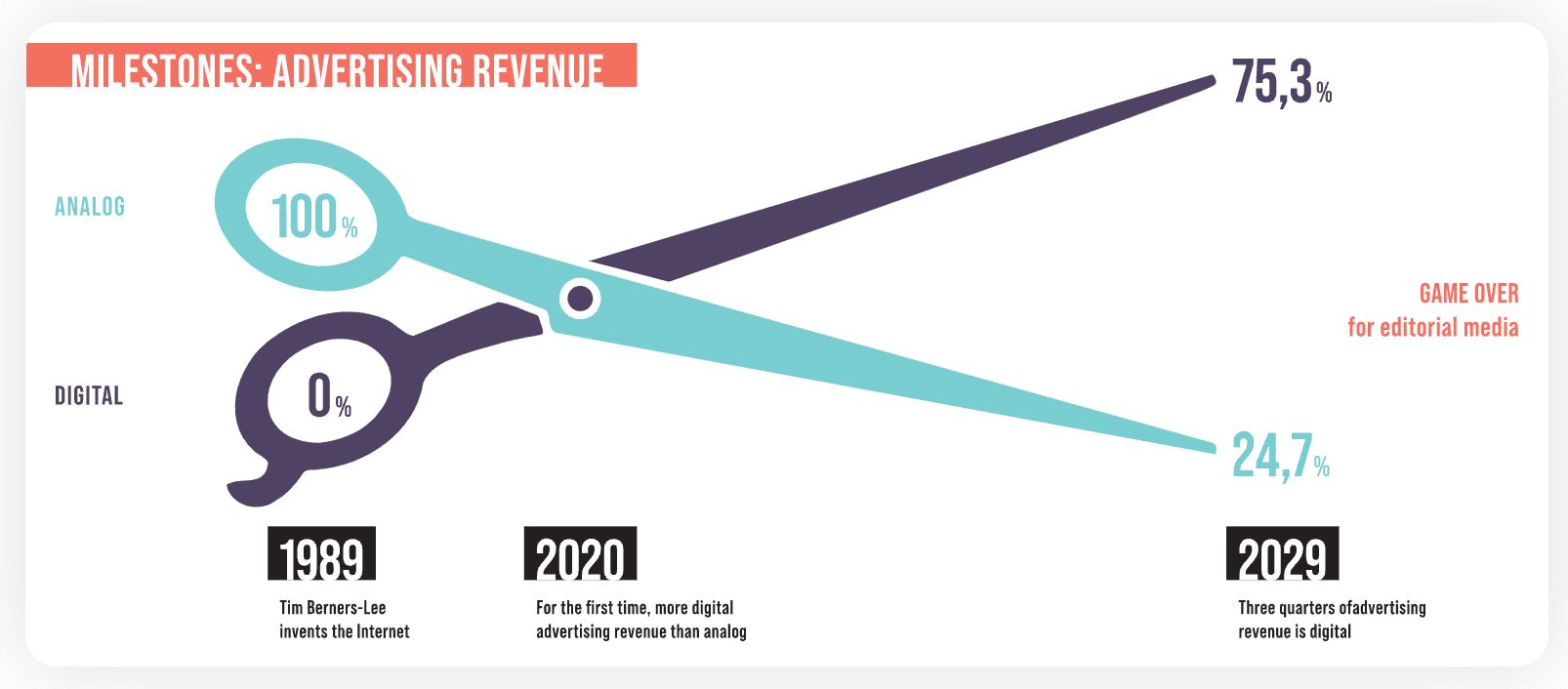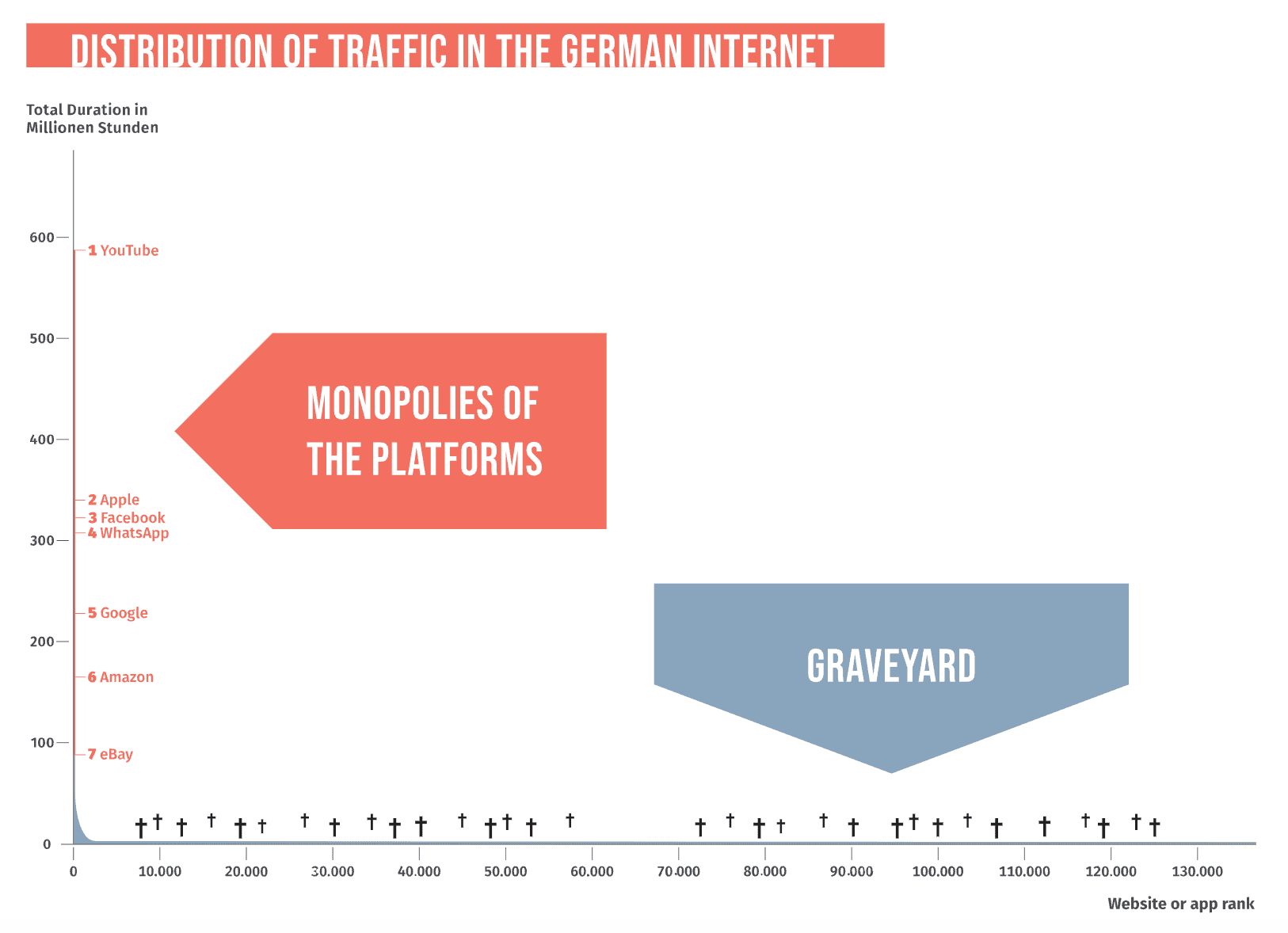Breaking the stranglehold of Big Tech: why media monopolies must end - and how we can do this without spending
Martin Andree, writer of "Big Tech Muss Weg" held a convincing speech before an audience of journalists in Amsterdam - “Under these conditions, journalism, whether publicly or privately funded, cannot survive.”
Published on December 11, 2024

Martin Andree in Amsterdam
Bart, co-founder of Media52 and Professor of Journalism oversees IO+, events, and Laio. A journalist at heart, he keeps writing as many stories as possible.
His book Big Tech Muss Weg (Big Tech Must Go), published in 2023, invited media scholar Martin Andree to more than 150 events and seminars. But his main message ("the power of Big Tech must be broken because it's completely illegal") still needs to be fulfilled.
Today, Andree visited the annual meeting of the Dutch Association of Journalists (NVJ), where he found a receptive audience. "It's not difficult to conclude that these companies are not democracy compliant. If you intentionally break laws, if you lie consistently to officials, and if you have these completely non-compliant ways of tax avoidance, you are definitely an entity that is not democracy compliant. So I would compare this with these Bandidos-like gangs. They think they can do what they want, they take things away from other people. And the funny thing is, our politicians keep talking to them like their activity is fully accepted. Stop it!"
Martin Andree started his talk with a view on the landscape during the COVID-19 pandemic, which marked "a pivotal moment in the media landscape": for the first time, digital ad spending surpassed all analog media combined. According to Andree, this was more than just a financial shift. It signaled a seismic transformation in how attention is captured, distributed, and monetized, with profound consequences for democracy.

© Martin Andree
“We don’t have free markets anymore,” Andree declared in his presentation, laying bare the core argument of his book. “Monopolies dominate the digital world, and what remains for everyone else is a graveyard.”
From promise to reality
The early days of the internet were steeped in optimism. Platforms were celebrated as democratic spaces that would empower diverse voices, offering an open, Robin Hood-like redistribution of opportunity. But Andree’s research reveals a starkly different reality.
Drawing on his study, the first to measure digital media usage across an entire country, Andree calculated the Gini coefficient—a measure of inequality—for internet traffic in Germany. The result? A staggering 0.988, closer to perfect inequality (1.0) than any reasonable balance.
“It’s not a free internet,” Andree said. “We have a few who have everything, and everyone else has nothing. We have monopolies and a graveyard.”
How Big Tech stifles competition
Andree identified six key mechanisms through which Big Tech consolidates its dominance:
- Network Effects: A platform's value increases as more people use it, making it nearly impossible for newcomers to compete.
- Closed Standards: Unlike open systems like email, Big Tech platforms create walled gardens, trapping users within their ecosystems.
- Traffic Hoarding: Platforms funnel traffic to their services, self-preferencing content, and sidelining competitors.
- Unfair Content Monetization: Platforms extract value from user-generated and journalistic content without assuming liability.
- Regulatory Loopholes: Big Tech exploits gaps in media and liability regulations to build monopolistic empires.
- Monopoly Abuse: Platforms eliminate meaningful competition by leveraging their control over infrastructure.
Andree pointed to Google as a prime example, showing how the tech giant redirects traffic to its own offerings, doubling its expected share. “If you’re out there with your journalistic content, you will never have a fair chance,” he asserted.

© Martin Andree
The stakes for democracy
The implications of this monopolistic control extend far beyond economics. Andree argues that media monopolies undermine democracy itself. With 80-90% of digital ad spending flowing to a handful of tech giants, editorial media—a cornerstone of a democratic society—is starved of resources.
“The monopolists decide what information people see,” Andree warned. “We’re losing free media on a fundamental level. It’s not just a little problem we can optimize away. Under these conditions, journalism, whether publicly or privately funded, cannot survive.”
A feasible solution
Despite the grim diagnosis, Andree insists the problem can be solved. Unlike climate change or geopolitical conflicts, which require immense resources and sacrifices, addressing Big Tech’s dominance costs “zero euros” and can be achieved through regulatory reform. He proposed five key measures:
- Open Links: Platforms must allow seamless external linking, enabling users to exit ecosystems freely.
- Open Standards: Mandate interoperability, breaking down walled gardens, and fostering competition.
- Infrastructure-Content Separation: Prevent platforms from controlling both infrastructure and content.
- Market Share Caps: Limit any single player to 30% market share in critical media categories like search engines and video.
- Content Liability: Hold platforms accountable for monetized content without infringing on free speech.
“These measures aren’t radical,” Andree argued. “They’re basic principles of free markets and democracy. We can restore capitalism, not destroy it.”
Overcoming resistance
Implementing these changes, however, requires political will and international cooperation. Andree noted the difficulty of enacting reforms in Europe, where media regulation often falls under the jurisdiction of national governments, creating fragmentation. “The platforms exploit our weaknesses,” he said. “We need member states to align and push for harmonized EU rules.”
In his closing remarks, Andree expressed concern over the passivity with which societies have accepted Big Tech’s rise. “If we don’t act now, what will we tell our children in 20 years?” he asked. “That we were digital experts who didn’t understand what was happening? Or worse, that we understood and did nothing?”
